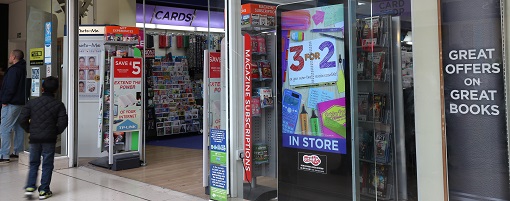Grocery price inflation hit 5.2 per cent this month, the highest level in a decade, according to figures from Kantar.
The research found that consumers are turning to own label products, which now account for over 50 per cent of all spending.
It also revealed that retailers are moving away from ‘round pound’ prices, with the percentage of packs sold at £1 to £3 falling by 2.3 per cent over the past 12-months.
“More and more we’re going to see consumers and retailers take action to manage the growing cost of grocery baskets,” said Fraser McKevitt, head of retail and consumer insight at Kantar. “Consumers are increasingly turning to own label products, which are usually cheaper than branded alternatives.
“Own label sales are down in line with the wider market but the proportion of spending on them versus brands has grown to 50.6 per cent, up from 49.9 per cent this time last year.”
Supermarket sales
During the three months to 20 March, supermarket sales were down by 6.3 per cent – the first annual decline in shopping trips for 12 months.
However, sales were still up by 0.7 per cent in comparison to two years ago.
Aldi achieved a record market share of 8.6 per cent over the 12-week period and Lidl matched its best market share at 6.4 per cent. Both budget retailers saw sales jump by 3.6 per cent.
“It’s no surprise that sales are down over the latest period as consumers are now more confident eating out of the home again,” added McKevitt. “What we’re really starting to see is the switch from the pandemic being the dominant factor driving our shopping behaviour towards the growing impact of inflation, as the cost of living becomes the bigger issue on consumers’ minds.”
Latest News
-
John Lewis expands retail media network with offsite ads
-
Evri plans £50m investment to double network of lockers and ParcelShops
-
Disney Consumer Products hires Nike veteran to SVP of global marketing
-
Home Depot secures $5.5bn takeover of GMS after beating rival bid
-
Asda targets Primark with George clothing expansion plans
-
Pandora partners with Amazon to catch counterfeiters
Supermicro and NVIDIA’s AI Solution for Retailers
To find out more: click here
Poundland significantly reduces antisocial behaviour, aggression and shoplifting with Motorola Solutions VT100 body cameras
Retail should not be a high-risk occupation. As a company, we are focused on listening to our colleagues and customers to help them with the issues they are facing in-store and so far, the feedback on our body cameras has been excellent. They act as a great visual deterrent, help to de-escalate situations and overall, this project has significantly aided our goal to make the retail environment safer.
For further information on Motorola Solutions’ retail security products, including body cameras, click here.
For further information on Motorola Solutions’ retail security products, including body cameras, click here.
© 2024 Perspective Publishing Privacy & Cookies










Recent Stories